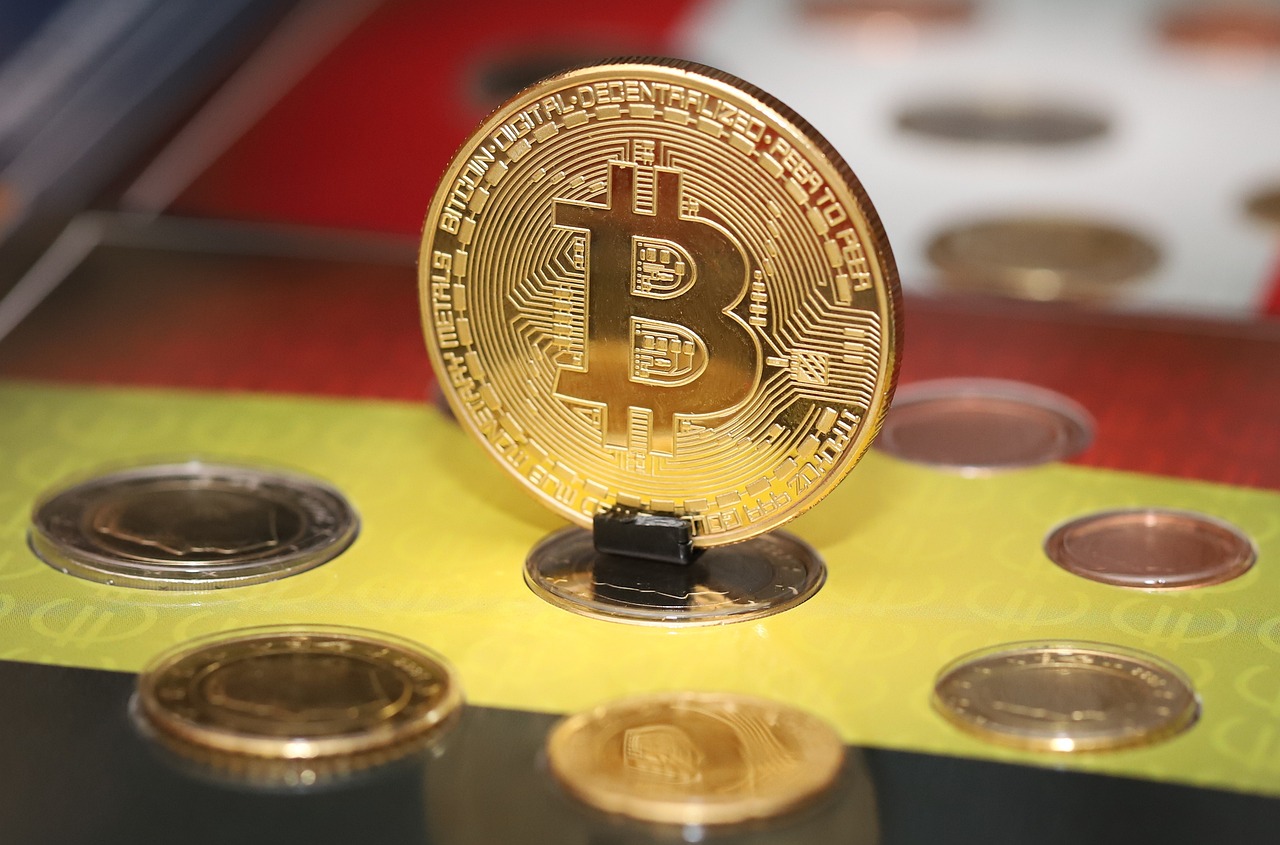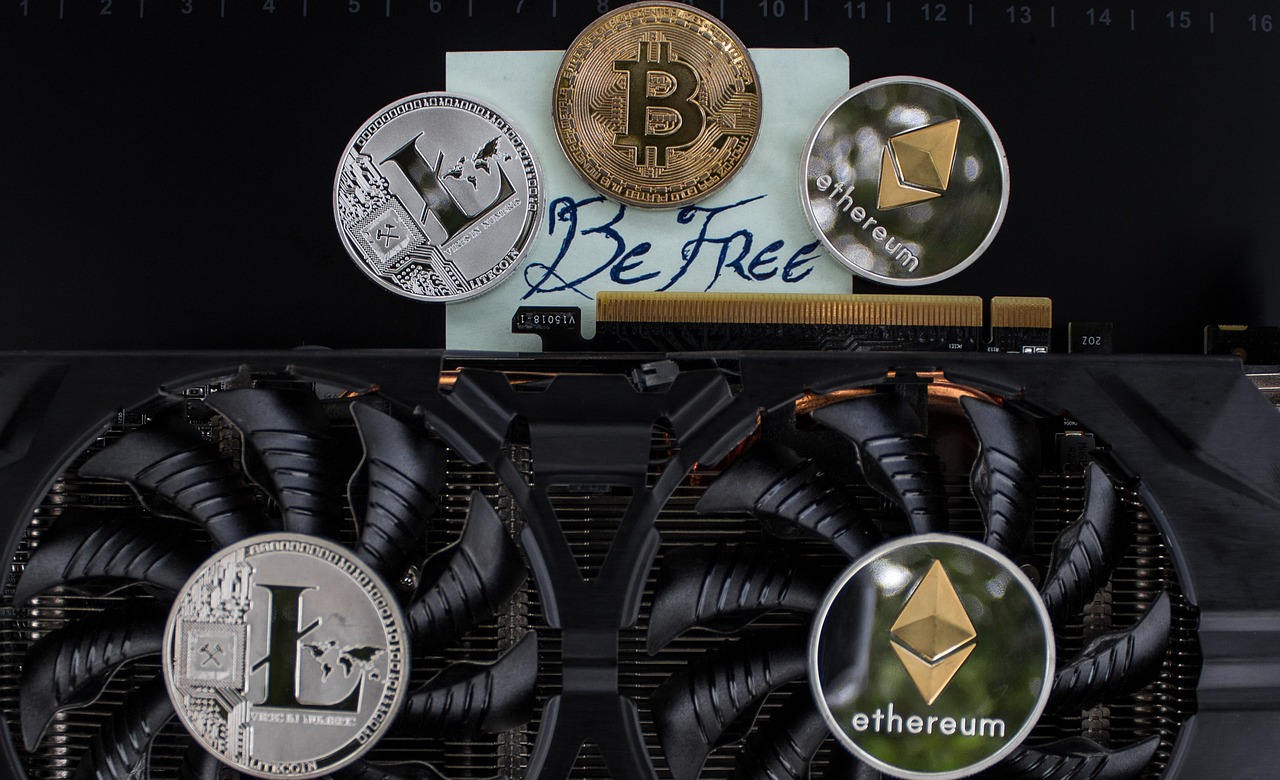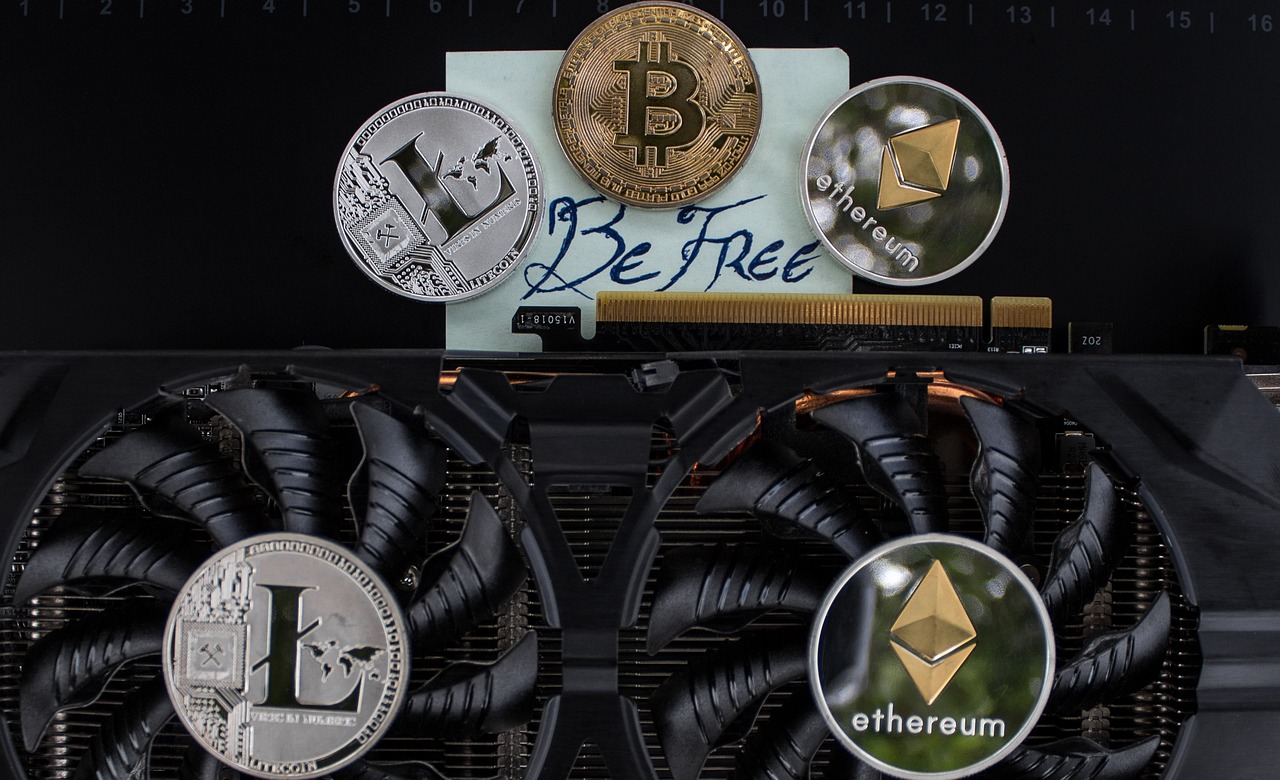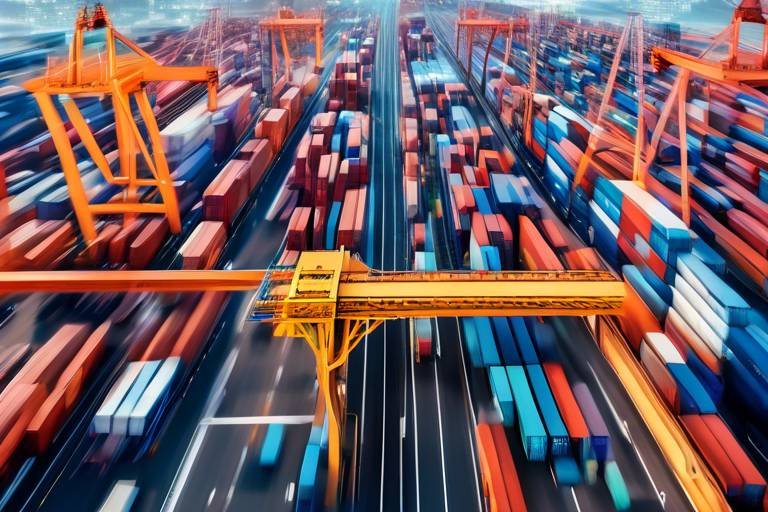The Role of Blockchain in Improving Logistics and Transportation
In today's fast-paced world, the logistics and transportation sectors are under constant pressure to enhance their operations. With the rise of e-commerce and global trade, the demand for more efficient, transparent, and secure supply chains has never been greater. Enter blockchain technology—a game changer that is revolutionizing how goods are tracked, verified, and delivered. Imagine a world where every transaction is recorded in an unchangeable ledger, visible to all parties involved. This is the promise of blockchain, and it's transforming logistics from a cumbersome process into a streamlined powerhouse.
At its core, blockchain is a decentralized digital ledger that records transactions across multiple computers. This means that no single entity has control over the entire database, which enhances security and trust among stakeholders. In logistics, this translates to improved transparency, as all parties can access the same information in real-time. Think of it like a shared diary where everyone can see the entries, but no one can erase them. This not only builds trust among partners but also significantly reduces the chances of fraud and errors.
Moreover, the benefits of blockchain extend far beyond just transparency. Imagine being able to track a package from the moment it leaves the warehouse until it arrives at your doorstep, with real-time updates at every stage of the journey. This level of traceability is not just a dream; it's a reality made possible by blockchain technology. With detailed logs of every movement, logistics companies can ensure the authenticity of products, thereby reducing the risk of counterfeits. This is particularly crucial in industries like pharmaceuticals, where the integrity of the supply chain can mean the difference between life and death.
But how does this all come together? The answer lies in the ability of blockchain to facilitate seamless communication between various stakeholders in the supply chain. From manufacturers to distributors, and retailers to customers, everyone can share and access data effortlessly. This leads to better decision-making and a more responsive approach to any issues that may arise during transportation. In a world where delays can cost companies millions, having real-time data at your fingertips is invaluable.
As we delve deeper into the benefits of blockchain in logistics, it becomes clear that this technology is not just a trend—it's a necessity for companies aiming to stay competitive in an ever-evolving market. By enhancing traceability, improving efficiency, and fostering collaboration, blockchain is paving the way for a more secure and efficient logistics landscape. The future of transportation is here, and it's built on the foundation of blockchain.
- What is blockchain technology?
Blockchain is a decentralized digital ledger that records transactions across multiple computers, ensuring that the information is secure and cannot be altered. - How does blockchain improve logistics?
It enhances transparency, traceability, and efficiency in the supply chain, allowing for real-time tracking and reducing the risk of fraud. - What are the challenges of implementing blockchain in logistics?
Challenges include integration with existing systems, scalability issues, and regulatory compliance. - Can blockchain eliminate counterfeits?
Yes, by providing a secure and transparent record of transactions and product origins, blockchain can significantly reduce the risk of counterfeit products entering the supply chain.

Understanding Blockchain Technology
Blockchain technology is often described as a revolutionary force, much like the internet was in its early days. At its core, blockchain is a decentralized digital ledger that records transactions across multiple computers. This decentralization means that no single entity has control over the entire chain, making it inherently more secure. Imagine a group of friends sharing a recipe book. Instead of one person holding the book, every friend has a copy, and any changes made are seen by all. This is similar to how blockchain operates—every participant in the network has access to the same information, which enhances transparency and reduces the risk of fraud.
One of the most striking features of blockchain is its immutability. Once a transaction is recorded, it cannot be altered or deleted. This is akin to carving your name into a tree; once it's there, it's there for good. This characteristic provides a level of trust that is hard to achieve with traditional record-keeping methods. In a world where data breaches and manipulation are rampant, the promise of an unchangeable record is incredibly appealing.
To understand how blockchain functions, it's essential to grasp the concept of a block. Each block contains a list of transactions, a timestamp, and a reference to the previous block, creating a chain of blocks—hence the name "blockchain." This structure not only secures the data but also makes it easy to trace back through the chain to verify the authenticity of transactions. Think of it like a digital chain of custody, where each link represents a transaction that has been verified and approved by the network.
In addition to its decentralization and immutability, blockchain utilizes advanced cryptographic techniques to secure data. Each block is linked to the previous one through a unique cryptographic hash, ensuring that any attempt to alter a block would require changing all subsequent blocks, which is practically impossible without the consensus of the network. This is what makes blockchain a robust solution for industries like logistics, where trust and security are paramount.
As we delve deeper into the applications of blockchain in logistics and transportation, it's important to recognize that while the technology offers immense potential, it also requires a shift in mindset. Stakeholders must be willing to embrace this new way of doing business, which involves sharing information openly and collaborating more closely than ever before. The journey may have its challenges, but the rewards of enhanced efficiency, security, and transparency are well worth the effort.

Benefits of Blockchain in Logistics
The integration of blockchain technology in logistics is nothing short of revolutionary. Imagine a world where every shipment is tracked with pinpoint accuracy, where fraud is virtually eliminated, and where collaboration among stakeholders is seamless. Sounds like a dream, right? Well, it’s becoming a reality. This section dives into the key advantages of implementing blockchain in logistics, showcasing how it enhances transparency, boosts efficiency, and fosters trust among all parties involved.
One of the standout benefits of blockchain is its ability to provide enhanced traceability. In traditional logistics, tracking a product's journey can be a complex web of paperwork and databases. Blockchain simplifies this by offering a decentralized ledger that records every transaction in real-time. This means that whether you're a manufacturer, a supplier, or a retailer, you can access the same information about a product's journey at any time. This level of transparency not only helps in verifying the authenticity of products but also builds trust among consumers who are increasingly concerned about the origins of their purchases.
When we talk about traceability, it’s essential to highlight how blockchain provides real-time tracking of goods. Each transaction is recorded in a block and linked to the previous block, creating a chain of information that is immutable and secure. This means that if a product is recalled due to safety concerns, companies can quickly trace back to the source and take necessary actions without delay. Imagine a food product that has been contaminated; with blockchain, you can pinpoint the exact location and batch, minimizing the risk to consumers and protecting your brand's reputation.
Moreover, the importance of real-time data sharing cannot be overstated. In the fast-paced world of logistics, being able to access up-to-date information allows stakeholders to make informed decisions swiftly. For instance, if a shipment is delayed due to unforeseen circumstances, all parties involved can be instantly notified, enabling them to adjust their plans accordingly. This level of responsiveness can significantly reduce operational hiccups, ultimately leading to better service delivery and customer satisfaction.
Another significant advantage of blockchain is its potential to reduce counterfeits. Counterfeit products are a major concern across various industries, from pharmaceuticals to luxury goods. Blockchain addresses this issue by providing a secure and transparent record of transactions and product origins. Each item can be assigned a unique identifier that is recorded on the blockchain, allowing consumers to verify the authenticity of a product before making a purchase. This not only protects consumers but also helps legitimate businesses maintain their market share and brand integrity.
In addition to traceability, blockchain also plays a crucial role in improving efficiency within logistics operations. By automating processes and reducing the reliance on paperwork, companies can significantly cut down on administrative costs and time delays. For example, smart contracts, which are self-executing contracts with the terms of the agreement directly written into code, can automate payment processes once certain conditions are met. This reduces the need for intermediaries and accelerates the flow of goods from point A to point B.
Furthermore, the transparency that blockchain provides leads to enhanced collaboration among stakeholders in the supply chain. With everyone having access to the same information, disputes can be resolved more efficiently, and partnerships can be strengthened. The traditional silo mentality that often plagues logistics operations is gradually being replaced by a more collaborative approach, where all parties work together towards a common goal.
In summary, the benefits of blockchain in logistics are extensive and transformative. From enhanced traceability and reduced fraud to improved efficiency and collaboration, this technology is paving the way for a more transparent and reliable supply chain. As more companies recognize these advantages, we can expect to see a significant shift in how logistics and transportation are managed in the future.

Enhanced Traceability
In today's fast-paced world, traceability has become a buzzword in logistics, and for good reason. Imagine being able to track a product's journey from the moment it leaves the factory to when it arrives at your doorstep. This is where blockchain technology steps in, revolutionizing the way we perceive and manage the movement of goods. By utilizing a decentralized ledger, blockchain provides a transparent and tamper-proof record of every transaction, ensuring that all stakeholders have access to real-time data about their products.
One of the most significant advantages of blockchain in logistics is its ability to enhance real-time tracking. Each time a product changes hands, whether it's moving from a supplier to a warehouse or from a warehouse to a retailer, that transaction is recorded on the blockchain. This means that everyone involved in the supply chain can see exactly where a product is at any given moment. For instance, if a shipment is delayed, logistics managers can quickly pinpoint the issue and take corrective action, minimizing disruptions and improving customer satisfaction.
Furthermore, the transparency offered by blockchain is a game changer when it comes to verifying product authenticity. In an era where counterfeit products are rampant, blockchain provides a secure way to confirm the origins of goods. Each product can carry a unique identifier, which is linked to its history on the blockchain. This allows consumers and businesses alike to verify that what they are purchasing is genuine, thereby fostering trust and confidence in the marketplace.
Consider a scenario where a food product is recalled due to contamination. With traditional systems, tracing the source of the problem can be a lengthy and cumbersome process. However, with blockchain, the entire history of the product can be accessed instantly. Stakeholders can quickly identify the batch number, the supplier, and even the specific farm where the product was grown. This level of traceability not only helps in addressing safety concerns but also significantly reduces the financial impact of recalls by allowing for swift action.
Moreover, the implementation of blockchain technology can facilitate better collaboration among stakeholders in the supply chain. With a shared, immutable record of transactions, companies can work together more effectively. For example, logistics providers, manufacturers, and retailers can all access the same data, leading to improved communication and coordination. This collaborative approach can help in identifying inefficiencies and bottlenecks, ultimately enhancing the overall performance of the supply chain.
In summary, enhanced traceability through blockchain technology is not just a trend; it is a necessity in the modern logistics landscape. By providing real-time tracking, ensuring product authenticity, and fostering collaboration among stakeholders, blockchain is paving the way for a more transparent, efficient, and secure supply chain. As companies continue to embrace this technology, the future of logistics looks brighter than ever.
- What is blockchain technology? Blockchain is a decentralized digital ledger that records transactions across multiple computers, ensuring that the record cannot be altered retroactively.
- How does blockchain enhance traceability? By providing a transparent and immutable record of each transaction, blockchain allows stakeholders to track the movement and history of products in real-time.
- Can blockchain reduce counterfeit products? Yes, blockchain enables verification of product origins, making it difficult for counterfeit goods to enter the supply chain.
- What are the challenges of implementing blockchain in logistics? Challenges include integration with existing systems, scalability issues, and navigating regulatory compliance.

Real-Time Data Sharing
Imagine you're waiting for a package to arrive, and instead of checking your email or tracking number, you can see the entire journey of your shipment in real-time, right on your smartphone. This is the magic of enabled by blockchain technology. By creating a transparent and immutable ledger, blockchain allows all stakeholders in the supply chain—from manufacturers to logistics providers to end consumers—to access the same data simultaneously. This means that everyone is on the same page, reducing the chances of miscommunication and errors.
One of the standout features of blockchain is its ability to provide a single source of truth. When data is recorded on the blockchain, it becomes a permanent record that cannot be altered without consensus from all parties involved. This level of transparency not only builds trust among stakeholders but also facilitates quicker decision-making. For instance, if a shipment is delayed, all parties can see the reason for the delay in real-time, enabling them to take immediate corrective actions.
Moreover, real-time data sharing through blockchain enhances operational efficiency. Traditional logistics often involves cumbersome paperwork and numerous handoffs, leading to delays and inefficiencies. However, with blockchain, information such as shipping details, inventory levels, and delivery statuses can be updated instantly and accessed by all relevant parties. This reduces the time spent on administrative tasks, allowing companies to focus on what really matters—delivering value to their customers.
Furthermore, consider the impact of real-time data sharing on customer satisfaction. In today's fast-paced world, consumers expect timely updates about their orders. By leveraging blockchain technology, companies can provide accurate and up-to-date information about shipments, which enhances the overall customer experience. Imagine receiving notifications about your package's location and estimated arrival time, all thanks to the seamless data flow facilitated by blockchain. This not only keeps customers informed but also increases their confidence in the brand.
To illustrate the benefits of real-time data sharing, let's take a look at a simple comparison:
| Traditional Logistics | Blockchain-Enabled Logistics |
|---|---|
| Delayed updates due to manual processes | Instant updates accessible to all stakeholders |
| High risk of errors and miscommunication | Single source of truth reduces errors |
| Time-consuming paperwork | Streamlined processes with digital records |
| Limited visibility for customers | Real-time tracking enhances customer experience |
In conclusion, real-time data sharing powered by blockchain technology is not just a trend; it’s a revolution in logistics and transportation. By fostering transparency, enhancing operational efficiency, and improving customer satisfaction, blockchain paves the way for a more responsive and agile supply chain. As we move forward, embracing this technology could very well be the key to staying competitive in an ever-evolving market.

Reducing Counterfeits
In today's global market, the threat of counterfeit products looms large, creating significant challenges for businesses and consumers alike. Imagine purchasing a luxury watch, only to discover that it’s a poorly made imitation. This not only results in financial loss for consumers but also damages the brand's reputation. Here’s where blockchain technology steps in to save the day! By providing a secure and transparent record of transactions and product origins, blockchain acts as a formidable ally in the battle against counterfeits.
One of the standout features of blockchain is its immutability. Once a transaction is recorded on the blockchain, it cannot be altered or deleted. This characteristic ensures that each product's journey—from manufacturer to retailer to consumer—is documented in a tamper-proof manner. For instance, a luxury handbag can have its entire history logged on the blockchain, detailing every step it took in the supply chain. This level of traceability not only assures consumers of the product’s authenticity but also empowers brands to take swift action against counterfeiters.
Furthermore, the decentralized nature of blockchain eliminates the need for a central authority, which is often a target for fraud. Instead, every participant in the supply chain has access to the same information, reducing the chances of manipulation. Imagine a world where every time a product changes hands, its authenticity is verified through a simple scan of a QR code linked to the blockchain. This not only enhances consumer trust but also encourages businesses to take a stand against counterfeit products.
To illustrate the effectiveness of blockchain in reducing counterfeits, consider the following table that highlights the key benefits:
| Benefit | Description |
|---|---|
| Transparency | All transactions are recorded and visible to authorized parties, ensuring accountability. |
| Traceability | Every product can be tracked back to its origin, confirming its authenticity. |
| Decentralization | Reduces the risk of fraud by distributing data across multiple nodes. |
| Consumer Confidence | Increased trust in brands due to verified product histories. |
Moreover, the ability to share real-time data through blockchain enhances collaboration among stakeholders. If a counterfeit product is detected, all parties can be promptly notified, allowing for quick responses and minimizing potential damage. This interconnectedness fosters a culture of vigilance, where everyone involved in the supply chain is actively working to protect against counterfeiting.
In conclusion, as the fight against counterfeit products intensifies, blockchain technology emerges as a beacon of hope. Its ability to provide secure, transparent, and immutable records not only protects consumers but also fortifies brands against the pervasive threat of counterfeits. With every transaction recorded on the blockchain, we move closer to a marketplace where authenticity is guaranteed, and trust is restored.

Improving Efficiency
When we talk about logistics, the word "efficiency" often comes to mind. It's like a well-oiled machine, where every cog and wheel works in harmony to deliver goods swiftly and accurately. Now, imagine introducing blockchain technology into this equation. It’s like adding a turbocharger to that machine, supercharging its performance! Blockchain streamlines logistics processes in several ways, reducing paperwork, minimizing delays, and ultimately leading to significant cost savings and improved service delivery for businesses and consumers alike.
One of the most significant advantages of blockchain is its ability to automate processes through smart contracts. These self-executing contracts with the terms of the agreement directly written into code can eliminate the need for intermediaries. Think of it like having a personal assistant that handles all your repetitive tasks without needing to be told twice. For instance, when a shipment is delivered, a smart contract can automatically trigger payment to the supplier, reducing the time spent on invoicing and payment processing. This not only speeds up transactions but also enhances the overall cash flow for businesses.
Moreover, blockchain technology drastically reduces the amount of paperwork involved in logistics. Traditionally, shipping and logistics operations are mired in a mountain of documents—bills of lading, customs declarations, and invoices, to name a few. Each document requires verification and approval, which can lead to delays. However, with blockchain, all relevant information is stored on a single, immutable ledger accessible to all parties involved. This means that instead of sending documents back and forth, stakeholders can instantly access the necessary information, making the entire process smoother and faster.
Additionally, blockchain enhances visibility across the entire supply chain. With real-time tracking capabilities, companies can monitor the status of their shipments at any given moment. This transparency allows businesses to respond quickly to any issues that arise during transportation. For example, if a shipment is delayed due to unforeseen circumstances, stakeholders can see this in real time and make informed decisions to mitigate the impact. It’s like having a GPS for your logistics operations—always knowing where you are and what’s happening around you.
Another critical aspect of improving efficiency is data accuracy. In traditional logistics, errors can easily occur during data entry or when transferring information between systems. However, blockchain technology ensures that every transaction is recorded accurately and cannot be altered. This level of accuracy reduces the chances of costly mistakes and ensures that all parties are working with the same information. It’s akin to having a master copy of a document that everyone refers to, eliminating confusion and discrepancies.
In summary, the implementation of blockchain in logistics not only enhances efficiency but also transforms the entire landscape of supply chain management. By automating processes, reducing paperwork, improving visibility, and ensuring data accuracy, businesses can operate more effectively and provide better service to their customers. As the logistics industry continues to evolve, embracing blockchain technology will undoubtedly be a game-changer for those looking to stay ahead of the curve.
- What is blockchain technology? Blockchain is a decentralized digital ledger that records transactions across multiple computers, ensuring that the recorded information is secure, transparent, and immutable.
- How does blockchain improve logistics? Blockchain improves logistics by enhancing traceability, reducing fraud, streamlining processes, and automating transactions through smart contracts.
- What are smart contracts? Smart contracts are self-executing contracts with the terms of the agreement directly written into code, allowing for automatic execution of transactions without intermediaries.
- What challenges does blockchain face in logistics? Challenges include integration with existing systems, scalability issues, and regulatory compliance, which need to be addressed for successful implementation.

Challenges in Implementing Blockchain
Implementing blockchain technology in logistics is not a walk in the park; it comes with its own set of challenges that can make even the most enthusiastic proponents scratch their heads. One of the primary hurdles is the integration with existing systems. Many companies have invested heavily in legacy systems that have been the backbone of their operations for years. The thought of overhauling these systems to accommodate blockchain can be daunting. It's akin to trying to fit a square peg into a round hole—there's a need for a solution that allows both systems to coexist and communicate effectively.
Moreover, the question of scalability looms large. Blockchain technology, while revolutionary, can sometimes struggle with handling a high volume of transactions in real-time. Imagine a busy highway during rush hour; if too many vehicles try to merge into one lane, congestion occurs. Similarly, if a blockchain network isn't designed to scale efficiently, it can lead to delays and increased transaction times, which is the last thing logistics companies want.
Regulatory compliance is another significant challenge. The logistics industry is heavily regulated, and the introduction of blockchain adds a layer of complexity that companies must navigate. There’s a pressing need for clear guidelines and standards that can help organizations understand how to leverage blockchain without running afoul of existing laws. Without these regulations, companies may hesitate to adopt the technology, fearing legal repercussions or penalties.
Furthermore, there’s the issue of interoperability. Different blockchain platforms may not easily communicate with each other, creating a fragmented ecosystem. This lack of standardization can hinder collaboration among stakeholders. For example, if one company uses a private blockchain while another uses a public one, sharing data between them can become a logistical nightmare. The industry needs to come together to develop common standards that facilitate seamless interaction across various blockchain networks.
Lastly, there’s the challenge of educating stakeholders. Many individuals working within logistics may not fully understand blockchain technology or its potential benefits. This knowledge gap can lead to resistance to change, as employees may be skeptical about adopting a new system they don’t comprehend. Companies must invest in training and education to help their workforce embrace blockchain technology, ensuring everyone is on the same page.
- What are the main challenges of implementing blockchain in logistics? The primary challenges include integration with existing systems, scalability issues, regulatory compliance, interoperability among different blockchain platforms, and the need for education and training.
- How can companies overcome integration challenges? Companies can overcome integration challenges by developing interoperable solutions that allow blockchain to work alongside existing legacy systems.
- What role does regulatory compliance play in blockchain adoption? Regulatory compliance is crucial as it provides the guidelines necessary for companies to adopt blockchain without facing legal issues.
- Why is education important in the implementation of blockchain? Education is vital to bridge the knowledge gap among stakeholders, helping them understand the technology and its benefits, which can reduce resistance to change.

Integration with Existing Systems
Integrating blockchain technology into existing logistics systems can be likened to fitting a square peg into a round hole. While the benefits of blockchain are significant, the journey to seamless integration is often fraught with challenges. Many companies have invested heavily in their legacy systems, which were not designed with blockchain in mind. This creates a significant hurdle when trying to adopt new technologies that promise efficiency and transparency.
One of the primary issues is the data silos that exist within organizations. Different departments may use various systems that do not communicate with each other, making it difficult to implement a unified blockchain solution. For instance, a logistics company might have separate systems for inventory management, order processing, and shipment tracking. Without proper integration, the full benefits of blockchain, such as real-time data sharing and enhanced traceability, cannot be realized.
Moreover, the integration process requires not only technical adjustments but also a cultural shift within organizations. Employees must be trained to understand and utilize blockchain technology effectively. This can be a daunting task, especially in larger organizations where resistance to change is common. Companies need to invest in interoperable solutions that allow blockchain to work alongside existing systems, ensuring that the transition is smooth and does not disrupt ongoing operations.
To illustrate the complexity of this integration, consider the following table that outlines some common challenges and potential solutions:
| Challenge | Potential Solution |
|---|---|
| Data Silos | Implement middleware solutions that enable communication between systems. |
| Resistance to Change | Conduct training sessions and workshops to educate employees about blockchain benefits. |
| Compatibility Issues | Develop APIs that facilitate integration between blockchain and legacy systems. |
In addition to these challenges, companies must also consider the cost implications of integration. Upgrading systems, training staff, and maintaining the new technology can require substantial investment. However, it’s essential to view this as a long-term investment rather than a short-term expense. The efficiencies gained from blockchain can lead to significant cost savings over time, making the initial costs worthwhile.
Ultimately, successful integration of blockchain into logistics systems is not just about technology; it’s about people and processes. Organizations must foster a culture of innovation and adaptability, encouraging teams to embrace new technologies. By doing so, they can not only overcome the challenges of integration but also position themselves at the forefront of the logistics revolution.
- What is blockchain technology? Blockchain is a decentralized digital ledger that records transactions across multiple computers securely and transparently.
- How does blockchain improve logistics? It enhances traceability, reduces fraud, improves efficiency, and fosters collaboration among supply chain stakeholders.
- What are the main challenges of integrating blockchain? Challenges include data silos, resistance to change, compatibility issues, and cost implications.
- Is blockchain worth the investment? Yes, while initial costs can be high, the long-term savings and efficiencies gained can outweigh these costs.

Regulatory Compliance
When it comes to adopting blockchain technology in logistics, one of the most significant hurdles that companies face is . The logistics industry is heavily regulated, with various laws and standards governing everything from safety to environmental impact. As blockchain introduces a new paradigm of data management and sharing, it raises questions about how existing regulations apply and what new guidelines might be needed. Imagine trying to navigate a maze where the paths keep changing; that’s what compliance looks like in the blockchain landscape.
One of the primary concerns is the lack of clear regulations specifically tailored for blockchain applications. While many countries have made strides in establishing frameworks for digital currencies and data privacy, logistics companies often find themselves in a gray area. The absence of standardized regulations can lead to uncertainty, making stakeholders hesitant to fully embrace blockchain solutions. For example, how do we ensure that sensitive data shared on a blockchain complies with GDPR in Europe or CCPA in California? These questions need clear answers before companies can confidently move forward.
Moreover, regulatory bodies are still catching up with the rapid pace of technological advancement. This lag can result in inconsistent enforcement across different regions. A company operating in multiple countries may find that its blockchain solution meets the requirements in one jurisdiction but falls short in another. This inconsistency can complicate operations, leading to potential legal ramifications and financial penalties. To illustrate, consider a logistics firm that implements a blockchain system for tracking shipments; if one country requires specific data retention policies that another does not, the firm may inadvertently violate local laws.
To navigate these challenges, it’s essential for companies to engage with regulators proactively. By participating in discussions and providing feedback on proposed regulations, businesses can help shape the future of blockchain compliance. Additionally, forming partnerships with industry groups can amplify their voice and advocate for more coherent regulatory frameworks. Collaboration is key here, as it allows stakeholders to pool their resources and knowledge, making it easier to address compliance issues collectively.
In summary, while blockchain technology offers immense potential for improving logistics, regulatory compliance remains a significant challenge. Companies must stay informed about evolving regulations and actively participate in shaping the landscape to ensure their blockchain implementations are not only effective but also compliant. As the industry moves forward, striking a balance between innovation and compliance will be crucial for success.
- What is blockchain technology? Blockchain is a decentralized digital ledger that records transactions across multiple computers, ensuring that the data is secure and immutable.
- How does blockchain improve logistics? It enhances transparency, traceability, and efficiency in supply chains by providing real-time data and reducing the risk of fraud.
- What are the main challenges of implementing blockchain? Key challenges include regulatory compliance, integration with existing systems, and scalability issues.
- How can companies ensure regulatory compliance? Companies should engage with regulatory bodies, stay updated on laws, and participate in industry discussions to shape compliance frameworks.
Frequently Asked Questions
- What is blockchain technology?
Blockchain technology is a decentralized digital ledger that records transactions across many computers in a way that the registered transactions cannot be altered retroactively. This ensures transparency and security, making it ideal for applications in logistics and transportation.
- How does blockchain improve traceability in logistics?
Blockchain enhances traceability by providing a secure and transparent way to track goods in real-time. Each transaction is recorded on the blockchain, allowing stakeholders to see the movement and status of products throughout the supply chain, ensuring authenticity and reducing the risk of fraud.
- Can blockchain reduce counterfeiting in supply chains?
Absolutely! By maintaining a secure and immutable record of transactions, blockchain helps verify the origin of products. This transparency makes it difficult for counterfeit goods to enter the supply chain, protecting both consumers and brands.
- What are the efficiency benefits of using blockchain in logistics?
Blockchain streamlines logistics processes by reducing paperwork, minimizing delays, and enhancing communication among stakeholders. This leads to faster delivery times, cost savings, and improved service quality, making logistics operations more efficient overall.
- What challenges exist when implementing blockchain in logistics?
Some challenges include integrating blockchain with existing legacy systems, scalability issues, and navigating regulatory compliance. Companies need to develop interoperable solutions and adhere to guidelines to facilitate smooth adoption.
- How can companies ensure regulatory compliance with blockchain?
To ensure compliance, companies should stay informed about the evolving regulatory landscape and actively engage with policymakers. Collaborating with industry groups can also help in developing standards and best practices for blockchain implementation in logistics.
- Is blockchain technology secure?
Yes, blockchain technology is considered highly secure due to its decentralized nature and cryptographic principles. Once data is added to the blockchain, it becomes nearly impossible to alter or delete, providing a reliable and trustworthy record of transactions.



















